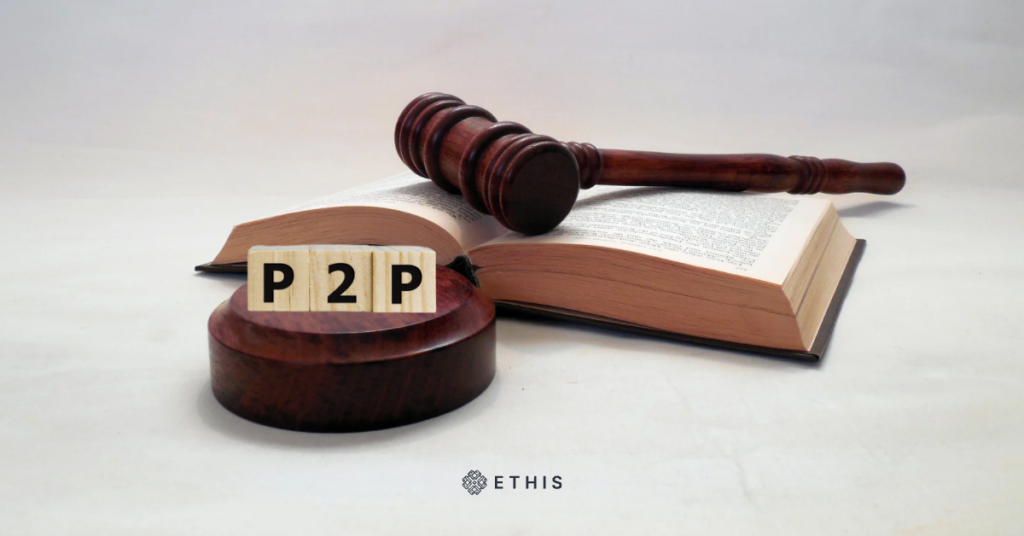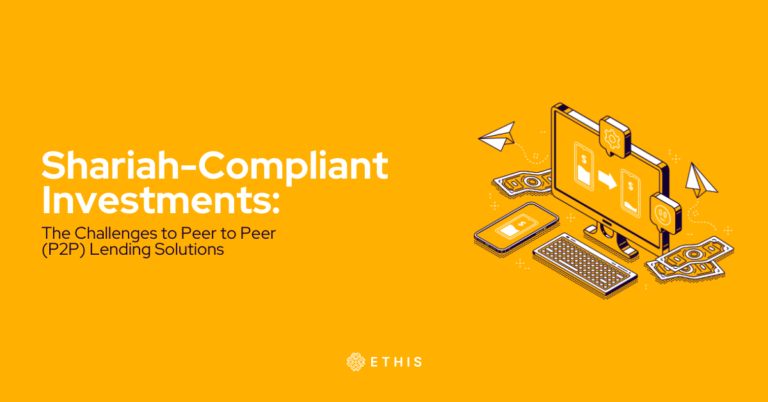
Islamic banking has been recognised for its ability to provide ‘innovative financial solutions to an underserved market.’ However, due to its relatively young age and strong religious grounding, a particular concern might be the scarcity of shariah-compliant investment instruments. Additionally, shariah banks are particularly strict in that they typically refuse personal loans. They also tend to be unwilling to lend to businesses:
According to the World Bank, “Despite the fact that 76 percent of enterprises in MENA has a bank account, only 26 percent reported having a credit from a financial institution. Given this low credit penetration at the corporate level in Muslim countries, some solutions have been implemented to narrow the credit gap which is estimated to be more than US$140 billion.”
Instead of making personal loans, Islamic banks prefer to invest directly in the targeted asset or business using shariah-compliant musharakah and mudarabah products. Although this strategy has advantages, it may limit the options available to its clients.
Furthermore, one of the issues that Islamic finance has had to cope with in the past, and much more so in the present, is the huge credit gap. According to Syakir Hashim from Wahed Invest, a large portion of the Muslim community is underserved in the area of financial services. This is not only discriminatory, unjust, and contrary to shariah values (which aim for fairness, social inclusion, and the equitable distribution of wealth in society), but it is also short-sighted in terms of effectively building the shariah-based financial services system.


Furthermore, failing to embrace Fintech may result in the loss of the under-30s demographic in Muslim countries. Given that the majority of this tech-savvy generation possesses a smartphone, it is difficult to assume that they will not take advantage of the ability to handle their financial needs online, such as paying bills, getting loans, or even opening a bank account.
One key consequence of Islamic banking practices as they currently exist is an increase in the cost of banking under the shariah banking framework. To that end, it is suggested that shariah banks could build shariah-compliant and cost-effective investment products by embracing Fintech-based solutions (which clearly provide for quicker, consumer-oriented, and cheaper transactions).
As a result, it makes sense to try to find Fintech tools that might be used by Islamic finance professionals. Although most FinTech instruments are adaptable enough to meet the demands of the shariah market, it has been proposed that P2P lending and Robo advising are two of the most suited. P2P lending will be covered in further detail:
Solution: Shariah-compliant finance through peer-to-peer (P2P) lending.


P2P lending (also known as crowdlending or social lending) is a non-intermediary method of debt financing in which individuals borrow and lend money directly to one another. While less expensive, peer-to-peer lending is said to be riskier, as well as taking more time and effort than typical credit institution lending or borrowing.
P2P features that have been incorporated into Islamic finance include P2P crowdfunding, remittance, and mobile wallet.



a) Crowdfunding
Crowdfunding, in theory, links a borrower and a creditor without requiring the two to live in the same country or even know one other. Using Fintech (together with other digital developments such as social media) for such transactions is logical, as it results in decreased transaction costs. Additionally, P2P lending is considered shariah-compliant since it is based on risk-sharing rather than risk-transferring.
b) Remittance
Fintech-enabled remittance makes the flow of money considerably more affordable, which is appealing to the large number of migrants who need to send money back to their relatives in their home countries to support their families. Notably, remittances may be made even if you do not have a bank account. Instead of transporting money across borders, Fintech links senders across borders, rerouting money back into the country of origin.
c) Mobile Wallet
The mobile wallet function enables the recipient to pay their utility bills and make other micropayments using their smartphones alone, eliminating the need for a separate bank account. Users who do not have access to a bank account (again, including migrants) are able to engage actively in everyday life and profit from services and goods that would otherwise be out of reach for them.
Advantages of P2P Lending


It is proposed that these characteristics of peer-to-peer lending encourage better participation of marginalised groups of individuals and that this is potentially helpful not only for Muslim nations but also for Western countries coping with Muslim immigration.
The positive elements of peer-to-peer financing appear to have been appreciated by Muslim small business owners. Demonstrating the extent to which shariah and fintech are compatible, the inventor of one of the most popular mobile payments networks in Indonesia is also a prominent Islamic cleric. According to Yusuf Mansur, co-founder of Paytren, his start-up has submitted an application to be recognised as Indonesia’s “first shariah-compliant, mobile, P2P lender” as of June 2017.
It is believed that, with the assistance of entrepreneurs like Mansur, peer-to-peer lending would become a regular feature of Indonesia’s financial scene. A portion of the country’s $70 billion credit deficit for small and medium-sized firms is projected to be filled by this initiative. Furthermore, considering the fact that more than half of Indonesia’s population is under the age of 30, the role played by peer-to-peer lending is expected to grow in the coming years.
Malaysia is another interesting case study in terms of innovation and Shariah-compliant finance. The country launched an Investment Account Platform (IAP) in early 2016. This platform was created to connect projects in need of funding with investors. The bank’s function is not to offer financing. Rather than that, the bank’s role is to guarantee that the project is Shariah-compliant; specifically, that it is not excessively risky. The bank’s next step is to screen the project supplier and issue them a credit rating. After this is completed, ‘the project is published to a website where investors may pick investments based on their risk tolerance.’
Notably, Malaysia’s government has granted $47.8 million to the Working Capital Guarantee Scheme (WCGS) Fund for start-ups. Additionally, in an effort to foster a more hospitable environment for fintech-focused SMEs and start-ups, Malaysia’s central bank and financial regulator, Bank Negara Malaysia, established a regulatory sandbox framework for fintech initiatives.
The above indicates that FinTech creates great interest in the Islamic financial sector, both among market participants and regulators; yet, the extent to which this interest is taken, particularly in comparison to the West, remains unknown.
Conclusion
According to the findings of the study of shariah-compliant peer-to-peer lending, parts of it such as crowdfunding, remittance, and mobile wallet are particularly well suited to the demands of a large segment of the population in Islamic countries. It enables persons who have been denied the opportunity to bank with a traditional credit institution to conduct financial activities, pay their bills, and send money abroad, to mention a few examples.
Furthermore, peer-to-peer lending may contribute to closing or narrowing the enormous credit gap that exists in Muslim nations, preserving more of the local money inside the local financial system, and allowing local banks to create more profit at a lower cost for everyone.





Top Posts
Islamic P2P Crowdfunding Explained
Halal Money Matters: How Muslims Can Balance Deen and Dunya with Smart Islamic Finance
Halal Investments for Singapore Muslims? It’s time for a shake-up in the Islamic Investments scene.
Smart investment for making Halal money
3 Reasons Why Property Crowdfunding is the Smart Investment for You